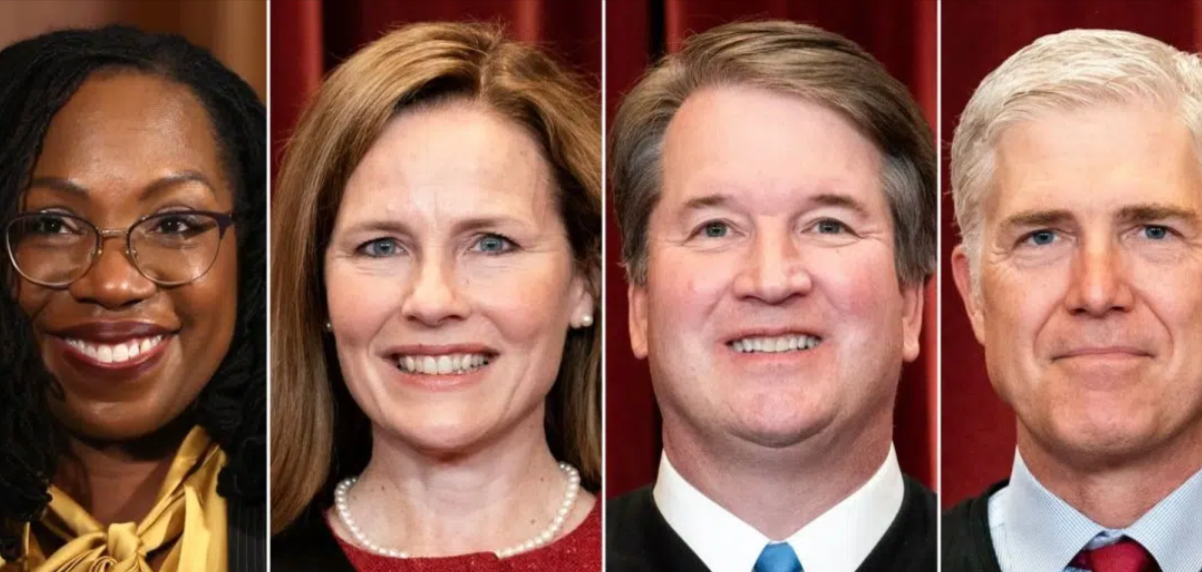Supreme Court Reinstates Anti-Money-Laundering Statute In Emergency Ruling

The U.S. Supreme Court has agreed to restore a federal anti-money laundering statute at the federal government’s request, even as a legal battle over its validity continues in a lower court.
With this emergency stay, the court has temporarily lifted a federal judge’s injunction that had previously blocked enforcement of the Corporate Transparency Act (CTA). This law requires millions of business entities to disclose their owners’ personal details. Notably, Justice Ketanji Brown Jackson was the only dissenter.
Late last month, the Biden administration’s Justice Department sought the Supreme Court’s intervention. The ruling was issued just three days after President Trump’s inauguration. While Trump’s Justice Department did not withdraw the application, he had opposed the legislation during his first term.
The Corporate Transparency Act (CTA), passed as part of the annual defense bill in early 2021, mandates that small business owners submit personal details, including dates of birth and addresses, to the Financial Crimes Enforcement Network. The objective is to curb money laundering and related criminal activities.
The controversy surrounding the law has drawn significant attention from business organizations and anti-regulatory advocates, many of whom are seeking to delay the compliance deadline.
“The case will now return to the 5th U.S. Circuit Court of Appeals, which will weigh the Justice Department’s defense of the law as a valid exercise of Congress’s constitutional authority over interstate commerce,” The Hill reported. “In the meantime, the justices’ order paves the way for officials to implement the disclosure requirement, which had been set to go into effect this month.”
Justice Jackson, the sole Biden-appointed member of the court, dissented, arguing that the government had not demonstrated “sufficient exigency.” She highlighted that the 5th Circuit was already expediting its review of the appeal.
“The Government deferred implementation on its own accord—setting an enforcement date of nearly four years after Congress enacted the law—despite the fact that the harms it now says warrant our involvement were likely to occur during that period,” she wrote in her dissent.
“The Government has provided no indication that injury of a more serious or significant nature would result if the Act’s implementation is further delayed while the litigation proceeds in the lower courts. I would therefore deny the application and permit the appellate process to run its course,” Brown Jackson continued.
On the other hand, the DOJ maintained that delaying enforcement would cause irreparable harm.
“It prevents the government from executing a duly enacted Act of Congress, impedes efforts to prevent financial crime and protect national security, undermines the United States’ ability to press other countries to improve their own anti-money laundering regimes, and severely disrupts the ongoing implementation of the Act,” former Solicitor General Elizabeth Prelogar argued in the government’s application to the Supreme Court.
The high court declined Prelogar’s alternative request to move the case to the justices’ regular docket, which would have allowed a broader examination of the authority of federal district judges to issue nationwide injunctions, as noted by The Hill.
“Universal injunctions” have become a frequently used tool to challenge laws and regulations introduced by both Democratic and Republican administrations. Resolving this matter could have had significant consequences for future legal disputes involving presidential policies.
Justice Neil Gorsuch, Trump’s first Supreme Court appointee, has previously raised concerns about such injunctions and expressed his interest in addressing the issue.
“I agree with the Court that the government is entitled to a stay of the district court’s universal injunction. I would, however, go a step further and, as the government suggests, take this case now to resolve definitively the question whether a district court may issue universal injunctive relief,” Gorsuch wrote in a brief concurring opinion.
This case originated when several plaintiffs—including a firearms dealer, a dairy farm, an information technology company and one of its owners, the National Federation of Independent Business (NFIB), and the Libertarian Party of Mississippi—challenged the Corporate Transparency Act, arguing that it overstepped Congress’s authority.